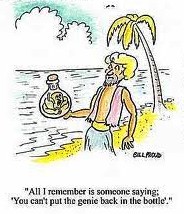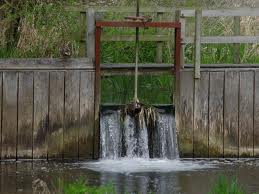 A short while ago, I received an e-mail from a reader who said:
A short while ago, I received an e-mail from a reader who said:
I’m on the same path as you once walked. I have a small business that is making good money and just started into real estate. So far I have 7-9 houses and I’m looking for my first commercial building.
Michael told be that he started a consulting company with his partner about 7 years ago, and ventured into real-estate investment after he realized how much hard work it was and how little the consulting business returned (Michael’s business only had $80k in the bank after 5 years of hard work). I guess that situation has finally improved …
Michael and his business partner stumbled onto the idea of real-estate investing when Michael realized that the one rental property that he had owned for years had halved in value!
For most people this would be a sign to run away from real-estate, instead Michael took the Warren Buffet line (“be fearful when others are greedy, and greedy when others are fearful”) and ran towards it …
… but, he quickly realized that he could find other houses that had halved in value since the ‘crash’ and maybe pick up some real bargains.
This is the sign of a true investor – Michael had found his niche.
He began by making a ‘low-ball offer’ that was “too low to accept” on one property … yet, it did get accepted and Michael had made his first (actually, second, since he still owned that rental) real-estate purchase.
Except that Michael forgot to mention the deal to his business partner; so, his next phone call to his business partner that went something like this: “I got this great idea!”
Fortunately, his business partner shared Michael’s vision, so that first purchase followed with a flurry of other purchases and after just one year they now own 8 single family rental houses!
I asked Michael to share with you how he invests in real-estate:
The residential real estate market has been a boom to investors. It seems that everyone now is cashing in on the housing downturn. Here is a breakdown of the steps that I use to determine which houses to invest in that will turn a profit; here are my basic criteria for a good rental house:
- At least 1000 sq ft
- 3 to 4 bedrooms (3 bedrooms that can easily be converted into a 4 bedroom house)
- Garage (no one likes to park outside in the winter)
- Split level house (this configuration tends to be popular with rentals in my area)
- Decent sized yard
- Has sold or been valued for at least 100k or greater in the last 10 years based on Zillow.com
- Property taxes around 2k
I use Zillow and Home path to find properties in my desired zip code. I run the available houses through my criteria and start to narrow them down. I then will call up my realtor and set up appointments to look at the houses. It honestly takes me about 2-3 minutes to walk though a house and figure out what the house is worth (to me), how much it will cost to fix it up and what it will rent for.
The houses that I typically buy are about 45k. Some more, some less. My target is to have no more than 65k in each house total. That allows me to rent them between $945 and $1095 depending on the property. I try and average at least $1000 in rent per property. Once the house has been renovated I usually create 20-40k in instant equity. Here is a real world break down of two houses that I have. One was paid for with cash the other was purchased with a mortgage.
Cash property
- Asking price: 35k
- Purchase Price: 25k
- Approx renovation total: 30k
- Total investment: 55k
Month
Year
Property Taxes $138.76
$1665
Property Insurance $37.83
$454
TOTAL $176.59
$2119
This house rents for $995 per month and the tenants pay all of the utilities. I manage this property myself so there is no management fee and they deposit the rent directly into a bank account setup for that property.
The net income that I receive from that property is $818 per month [$995-$177] or $9821 per year (not deducting personal income tax). This represents about 18% cash-on-cash return per year [$9821/$55,000].
Mortgage property
- Asking price: 65k
- Purchase Price: 47k
- Approx renovation total: 15k
- Total property cost: 62k
- Mortgage: $32,830
- Cash down payment: $12,713
- Interest: 4.773%
Month
Year
Property Taxes $135.44
$1625
Property Insurance $40.08
$481
Mortgage Payment $167.80
$2014
TOTAL $343.32
$4120
This house rents for $1095 per month and the tenants pay all of the utilities. I manage this property myself so there is no management fee and they deposit the rent directly into a bank account setup for that property.
The net income that I receive from that property is $752 per month [$1095-$343] or $9020 per year (not deducting personal income tax). This represents about 71% cash-on-cash return per year [$9020/$12,713].
I’m already acquiring equity in these properties at a deep discount. In 5 years the gross rents will average close to 60k. Again some more, some less. At that point my plan is to sell all of these houses for an average of 100k (I have 8 houses) and cash out with about 2.5x my money invested. Ideally it looks like this:
60k rents over 5 years + 100k selling price – 65k total purchase price.
Now I don’t get caught up in all of the cost of my time, turnover allowances or maintenance of the property arguments. If you are busy constantly crunching those figures you have lost focus on the big picture. In the end a few thousand one way or the other doesn’t make ANY difference. Remember focus on the BIG PICTURE. Spend money up front on quality renovations and tenants and these will be insignificant expenses in the end.
Michael says that his average cash-on-cash returns, even in the current market, average 20-22% which is outstanding. And, if the real-estate market recovers in the near future, he should expect a tidy capital appreciation, as well.
But, not one to rest on his laurels, Michael is currently negotiating to buy not one, but two multi-million dollar commercial properties:
Today was the first day that I made an offer on a commercial property. It is a type “A” building with a 10% cap rate. I’m pretty excited. Our real estate company is small but growing rapidly. We have the down payment for the property which is priced at 4.25 million … I understand that 4.25 million is a big jump but the property will be professionally managed and cash flows very well. We are contacting about 8 different commercial banks. This will be a big step for our company. We just have to have a bank take a chance on us.
Michael actually ended up negotiating a ‘smaller’ $2.8m commercial property that he is purchasing with $250k down and the owner carrying $250k, which would leave them with sufficient cash in the bank (~$500k) allowing Michael and his business partner to pick up another property at about $2.5million.
A $5m + property portfolio puts Michael and his partner into the ‘big league’ …
Now, it’s not the value of the portfolio that you own, but the cash that you can realize if you sold it all off (or, the net income that it generates) that determines how well-off you really are, but I’m guessing that it won’t be much longer before Michael and his business parter can write their own “how I made $7 million in 7 years blog”.
I like reader stories like these … good or bad, rich or poor, heep ’em coming 🙂









